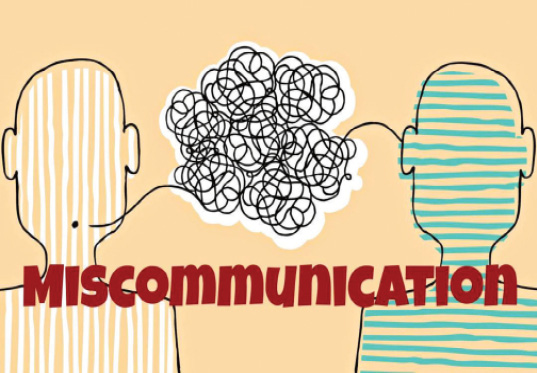The Use of Disinformation and Misinformation in Nigeria
By Kunle Lawal Disinformation and misinformation have become powerful tools in world politics, often undermining democratic processes by misleading voters. In Nigeria, these tactics have been notably prevalent, particularly since the 2015 elections. The misuse of language and facts during campaigns has influenced voter behavior, reshaped political narratives, and in some cases, destabilized entire electoral […]

The [mis]information you choose to believe could be harmful
By Kunle Lawal
Disinformation and misinformation have become powerful tools in world politics, often undermining democratic processes by misleading voters. In Nigeria, these tactics have been notably prevalent, particularly since the 2015 elections. The misuse of language and facts during campaigns has influenced voter behavior, reshaped political narratives, and in some cases, destabilized entire electoral cycles.
2015 Elections: The Impact of Language
In 2015, Nigeria experienced a watershed moment as disinformation and misinformation took center stage in political discourse. One notable aspect was the deliberate misuse of language to sway public opinion. For instance, in the heat of campaigns, certain candidates were accused of using divisive or false rhetoric to cast their opponents in a negative light. The Electoral Act 2010, as amended, emphasizes the need for language in campaigns to be clear and free of inflammatory, libelous, or false statements (Sections 95 and 96). However, during these elections, this provision was not strictly enforced, leaving room for unchecked language that fueled disinformation and misled voters.
False claims were broadcasted about various candidates, including misinformation about their health, qualifications, and personal lives. This had a profound impact on the public’s perception, as voters were often left unsure of what to believe. The misapplication of words, particularly those meant to invoke ethnic and religious biases, also deepened societal divides and set a dangerous precedent for future elections.
2019 Elections: Misinformation Thrives
By 2019, disinformation had evolved into more sophisticated forms, taking advantage of social media and digital platforms to spread rapidly. Despite the amendments made to the Electoral Act to curtail this, misinformation still thrived. Political actors often relied on false narratives and fabricated statistics to discredit their opponents. The amended Electoral Act 2018 further reinforces the prohibition of defamatory language, yet this did little to deter campaigners from exploiting the digital space for disinformation.
- Dangote Refinery free to sell petrol directly to marketers – NNPCL
- Edo suspends school resumption over hike in fuel price
The impact of social media platforms in the 2019 elections cannot be overstated. They provided a fertile ground for the spread of manipulated content, from doctored videos to fake news articles, which were often disseminated through sponsored online campaigns. These tactics created a post-truth environment, where facts were secondary to emotional manipulation and polarizing rhetoric.
2023 Elections: Post-Amendment Landscape
The 2023 elections saw the Electoral Act 2022 come into effect, which introduced several reforms aimed at improving the transparency and fairness of elections. One key area was the reinforcement of regulations on campaign conduct, particularly around language use. Section 92 of the amended Act explicitly forbids campaigns from employing abusive, slanderous, or hateful language, while Section 94(4) restricts political messaging that can incite violence or unrest.
Despite these improvements, disinformation remained a pervasive problem. Political parties and candidates continued to exploit the weaknesses in regulatory enforcement, often issuing statements that were later debunked as false. Misinformation surrounding the integrity of electoral bodies and the credibility of results led to post-election tensions, further demonstrating that while the legal framework had improved, enforcement was still lagging.
The Upcoming Edo Elections: A Preview
Looking ahead to the upcoming Edo State elections, unsavory comments and false claims have already started circulating, echoing the patterns of previous elections. It is clear that disinformation remains a tool wielded by those seeking to manipulate voter sentiment. Inflammatory remarks and unverified accusations have already surfaced, with some political actors bypassing the legal frameworks designed to maintain order.
This atmosphere underscores the need for more robust enforcement of the Electoral Act’s provisions on campaign language. As political tensions rise in Edo, it is critical that the lessons from past elections are applied to ensure that the electorate is not misled by false narratives and divisive rhetoric. The regulatory bodies must act swiftly to curb disinformation and ensure that the language used in campaigns remains respectful and truthful, in line with the spirit of Nigeria’s democratic processes.
Conclusion
The evolution of disinformation and misinformation in Nigeria’s political landscape is a growing concern, from the 2015 elections through to the present day. While the amendments to the Electoral Act have provided a clearer framework for regulating campaign conduct, enforcement remains a challenge. The upcoming Edo elections provide an opportunity for Nigeria’s electoral bodies to strengthen their oversight and prevent the continued misuse of language to undermine democracy. The fight against disinformation is an ongoing battle, one that requires constant vigilance and a collective effort to protect the integrity of the electoral process.
Lawal is the Executive Director of Electoral College Nigeria
